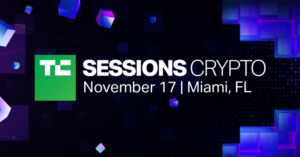Nishika de Rosairo, the founder and chief executive of HumanQ, has a vision for employee coaching that disagrees with some of the biggest, and most valuable startups out there. Instead of one-to-one coaching, which venture-backed companies like BetterUp and Sounding Board offer employees and managers, HumanQ wants to make group coaching an impactful alternative.
“We believe that organizations and individuals’ growth is not about the individual’s agenda and what they need – it’s about the organization’s agenda relative to groups of people who are going to have to collaborate together,” she said.
Betting on the collective mindset has landed HumanQ a $2 million seed round led by Kindred Ventures, with participation from angel investors including Toast CFO Elena Gomez, Natus Medical CHRO Lisa Paul and Google Head of Engineering Dinesh Chahlia. Rosario declined to provide the company’s valuation, but said that it ultimately was “really great and fair.” This is the company’s first tranche of capital after building for over three years.
Just two years ago, career coaching wasn’t necessarily a hot sector, but as the rise of remote work, the great resignation and the great reset all create a perfect storm that leaves employees looking for direction (and employers looking for retention), it’s unsurprising to see yet another play in the space.
The biggest argument in favor of one-to-one coaching is personalization. If your employer can dedicate a coach who is just focused on ways to better support and develop your career, it can be a strong support mechanism that fosters energy – and a savvy retention tool. The time commitment ranges from 6 to 36 hours over one year in any given contract.
“Even though coaching companies are popping up like mushrooms, they all [do] the same thing: one to one coaching and in a way that doesn’t address organizational needs in the way that we do,” Rosairio said.
She argues that the company’s bet on the group helps build mindset, break functional and geographical silos, recreates watercooler conversation – all which could help teamwork, inclusion and innovation. The startup claims that 94% of participants in their programs feel more engaged as a result. HumanQ has offered over 16,000 hours of coaching to over 2,000 users, claiming 280% growth from 2020 to 2021.
HunanQ is structured marketplace, meaning that employers pay coaches after they support customers. The startup says it has been generating cash flow since launch but, when asked if profitable, said that the “focus has been on injecting funds back into R&D.”
A potential challenge for HumanQ is one that is synonymous with any group-focused work: how do you create a safe space that balances vulnerability with buy-in and professionalism? Rosairo says that the company is very specific in how it hires coaches, with screening to make sure they can navigate individual personalities, create psychological safety and support confidentiality.
They need the “means to balance the needs of the individual with the group and the tension points that could exist, especially when you’re doing work [that can get] heated and tough.” It’s a difficult balance to strike, but one that the startup feels confident about scaling. Right now, all coaches work with HumanQ on a contractor basis – great for flexibility, but challenging when considering historical turnover with the employment status.
Approximately 95% of coaches on the platform have some sort of certification, Rosairo said that they do not need to be certified in order to join HumanQ. Instead, she says they need to prove that they have workplace and industry experience across diverse scenarios to be considered. The company is testing a direct to consumer version of its product this year but started with selling directly to businesses because that’s where it noticed the most gaps.
The pitch is enough to land the trust of companies like Microsoft, VMware, Chobani, Accenture and Gojek, all customers of HumanQ.








